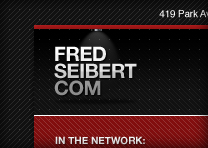Latest Post
State of the Species
My fellow humans, we’ve come a long way. Throughout our brief history on earth, we’ve tried to come to terms with a remarkable ability, its source, and what best to do with it.
Through relatively minor mutations, our species gained a much bigger brain featuring an affinity for language, learning and a rich sense of self. These changes made us human; finally the universe had an audience.
Man’s consciousness and freedom (even the illusion of it) gave us the ability to defy our instincts, for better and worse. We tamed nature, finding safety and comfort at the top of the food chain. As a result, our minds were free to explore matters other than survival and we found the big questions: what are we, where are we, and why are we here?

However, the appearance of these incredible abilities got to our heads. The species we are today is uniquely unnatural. We exploit our planet’s resources unlike any other living thing, wrecking nature’s delicate balance in the process. Most importantly, we have lost our innate sense of self-preservation, first as individuals and consequently as a species. The loss of our sense of self-preservation arose ironically out of our unique skill at the task. Simply put, we’re too smart for our own good.
This loss is significant because our species has a duty to survive in, learn from, and explore this existence. The immensity of our universe suggests that some form of life has developed elsewhere, but intelligent life like our own species is certainly rare. As observers, we have the ability to collapse the randomness of our universe into an understandable, tangible reality. We owe it to the ridiculous events that brought us here to stick around for more than our paltry few hundred thousand years.
The solutions to our current situation are generally drastic, as they require the reacquisition of our sense of self-preservation by mounting massive individual and communal attacks on our social structures. Individual self-preservation is impossible when we are uneducated or willfully ignorant of the destructive nature of our way of life, and species self-preservation cannot be realized as long as we kill one another across imaginary lines and leave our own to starve while we eat to excess.
Why is it so difficult? Being a human today means being buffeted down a turbulent river of pressures and fears imposed by our society’s needs. For fleeting moments I can hold my ground and even feel the calm wake I leave behind, but just as quickly I find an excuse for my own weakness and am pulled under (what use is it?).
Unfortunately, I’m pessimistic about the solutions, mainly because I understand how important it is to change but still do nothing about it. There’s a disconnect between my actions and their consequences that is easier bridged by more of the same. Damming the river can be accomplished in only two ways: either the majority of our species stands together to hold our collective ground, or we face some catastrophe that forcibly redirects its flow. The latter is easier. If our species’ focus is forced to self-preservation, perhaps then we might have a chance to finally abandon our old ways and reeducate ourselves and our descendents into positive, sustainable cultures. Homo sapiens is special, there is no question about that. Where we go wrong is in thinking that we can’t go extinct.
What do you think? Is the situation less dire than I think, are there alternative solutions?
Archive
-
260.
The Ethics of Practicing Procedures on the Nearly Dead
The report from the field was not promising by any stretch, extensive trauma, and perhaps most importantly unknown “downtime” (referencing the period where the patient received no basic care like...
-
260.
The Ethics of Teaching Hospitals
I can’t imagine what the patient was thinking. Seeing my trembling hands approaching the lacerations on his face with a sharp needle. I tried to reassure him that I knew what I was doing, but the...
-
260.
Conscious Conversation: Behavioral Science
Dr. Eran Zaidel is a professor of Behavioral Neuroscience and faculty member at the Brain Research Institute at UCLA. His work focuses on hemispheric specialization and interhemispheric interaction...
-
260.
Progress Report
Two years down, I’m still going. The next two years are my clinical rotations, the actual hands-on training. It’s a scary prospect, responsibilities and such; but it’s equally exciting, after...
-
260.
Why Medical School Should Be Free
There’s a lot of really great doctors out there, but unfortunately, there’s also some bad ones. That’s a problem we don’t need to have, and I think it’s caused by some problems with the...
-
260.
The Cerebellum: a model for learning in the brain
I know, it’s been a while. Busy is no excuse though, as it is becoming clear that writing for erraticwisdom was an important part of exercising certain parts of my brain that I have neglected...
-
260.
Conscious Conversation: Philosophy
Daniel Black, author of Erectlocution, was kind enough to chat with me one day and we had a great discussion – have a listen.
-
260.
The Stuff in Between
I’m actually almost normal when not agonizing over robot production details, and quite a bit has happened since I last wrote an update. First, I’ve finally graduated. I had a bit of a...


